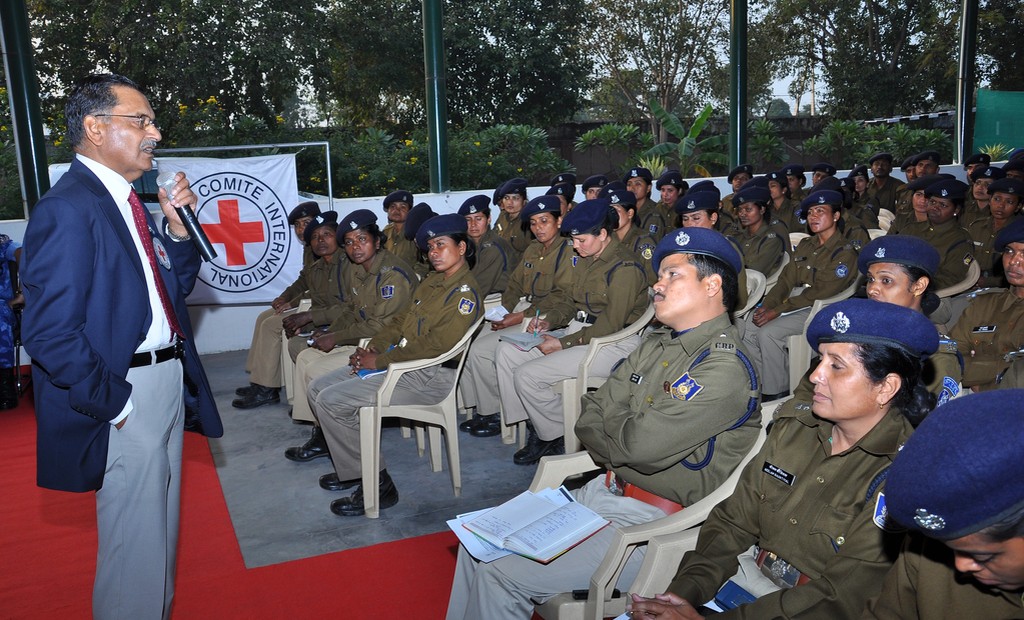India, which is the third largest contributor to UN peacekeeping missions after Pakistan and Bangladesh, recently deployed a 126-strong contingent of women officers from the Central Reserve Police Force (CRPF) to the United Nations Mission in Liberia (UNMIL). The peacekeeping force was established after the conclusion of the Second Liberian Civil War (1999–2003) and aims to support and serve Liberia as it recovers from the aftermath of war and the country’s law and order machinery develops to a point where its security agencies are self-reliant.
Before the women officers left for their peacekeeping duties in Liberia, the ICRC, led by D.K. Arya, IPS (Retd), Consultant, conducted an International Humanitarian Law (IHL) and International Human Rights Law (IHRL) training for them. The ICRC New Delhi office has been conducting such structured trainings for UN mission units since 2005.
The presence of women officers is a prominent feature of the UNMIL. Women peacekeepers have played an integral role in UN peacekeeping missions over the years. Their inclusion in such missions is seen to significantly boost the confidence of the local people and to help increase reportage of gender-based violence.
On the sidelines of the training, we spoke to one of the CRPF officers who shared her feelings at being chosen to be part of the UN mission and explained how such trainings make a difference on the field.
Have you ever been part of any ICRC-organised training earlier?
Yes, I have attended one ICRC training earlier. The study material on human rights and humanitarian law that was distributed during that training has been of immense help to me in field operations. Practical examples and illustrations from the session remain etched in my mind. The recent pre-deployment training by the ICRC was a chance for me to brush up and enhance my knowledge on the subject.
As a security personnel, you must already be trained on human rights issues. Do you feel these IHL/IHRL trainings add any value to your knowledge base?
Security personnel are usually trained on human rights issues and matters of security, but additional coaching always helps. I now have a better understanding of certain situations we commonly face in the line of duty. For instance, how to respect someone’s rights while arresting him or her in a situation of agitation or what precautions need to be undertaken while using firearms.
Could you tell us more about how the learning has helped you on the ground?
The learning came in very handy during the recent seven-week pre-induction training organised by the UN to prepare us for the peacekeeping mission in Liberia. The tips in the handbooks, brochures and publications that were given to us as part of the training session are especially helpful in ground situations. In fact, I am carrying this material on my mission.
What is the duration of your mission in Liberia?
We are going to Liberia for a year and will be working as part of the peacekeeping forces. One of the focal points of the mission is to sensitize local women about sexual violence through civil action plans.
How do you think you will cope with being away from your family for such a long duration while you are on the mission?
It is going to be very difficult to be away from my family, but the inner satisfaction and pride I am feeling to be chosen to represent India in a UN Mission kind of makes up for it. I know I will face many challenges, but am sure I’ll do my best to make my country proud.
ICRC New Delhi



